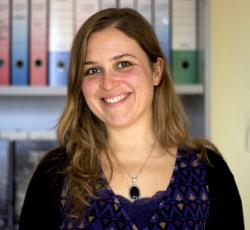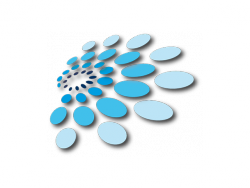- Home
- Department
- Research
- Teaching
- Post Graduate Studies
- Services and Equipment
- Knowledge Transfer
Cellular and Molecular Neuropathology (Prof. Cesca)
Research Strand:

Fabrizia Cesca
Associate Professor in Physiology (BIO/09)
Tel.: +39 040 558 8727
Email: fcesca@units.it
Biosketch
Dr. Fabrizia Cesca is an associate professor in neurophysiology at the University of Trieste, Department of Life Sciences, where she had previously held a tenure track position since December 2018, and is affiliated to the Center for Synaptic Neuroscience and Technology of the Istituto Italiano di Tecnologia (Genova).
Fabrizia graduated with honours in Biological Sciences at the University of Padova in 2003, and subsequently conducted her doctorate studies at the University College of London (UCL), working at the Cancer Research UK Institute, in Prof. G. Schiavo’s laboratory, until 2008. She continued her research experience at the Istituto Italiano di Tecnologia (IIT) in Genova, in the Neuroscience and Neurotechnologies Department led by Prof. Benfenati, first as a post-doc and then as a researcher, until she moved to Trieste.
Fabrizia’s main scientific interest concerns the cellular and molecular mechanisms that control the development and survival of neural cells (neurons, astrocytes), in particular for what concerns the response to neurotrophic factors such as brain-derived neurotrophic factor (BDNF) and nerve growth factor (NGF). Over the years Fabrizia has studied the physio-pathological role of the neuronal protein Kidins220/ARMS, employing both in vitro cultures of primary neuronal cells, and in vivo analysis of full and conditional knockout transgenic mouse lines. Overall, these studies have identified Kidins220 as a crucial component of the intracellular signaling pathways initiated by neurotrophins, with an important role in neuronal differentiation and in the modulation of network plasticity. More recently, Fabrizia has been part of the European ‘GRAPHENE’ Flagship: within this context, Fabrizia contributed to characterize the physiological impact of carbon nanomaterial exposure to primary neurons and astrocytes.
Fabrizia teaches the Neuropathology course (glial neuropathology module) of the International Master in Neuroscience, and the Neurophysiology course of the Bachelor’s Degree in Psychological Sciences and Techniques.
Fabrizia authored 36 publications on international peer-reviewed journals (H-index 20), 2 book chapters and a number of other scientific publications. Moreover, Fabrizia is actively engaged in dissemination activities, including seminars and lectures addressing high school students (Amici del Festival della Scienza / Science Festival, Genova) or the general public (Caffè delle Scienze / Science Cafés, Trieste).
Info
Last update: 10-30-2024 - 23:30



